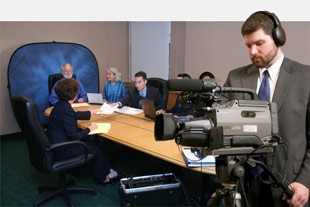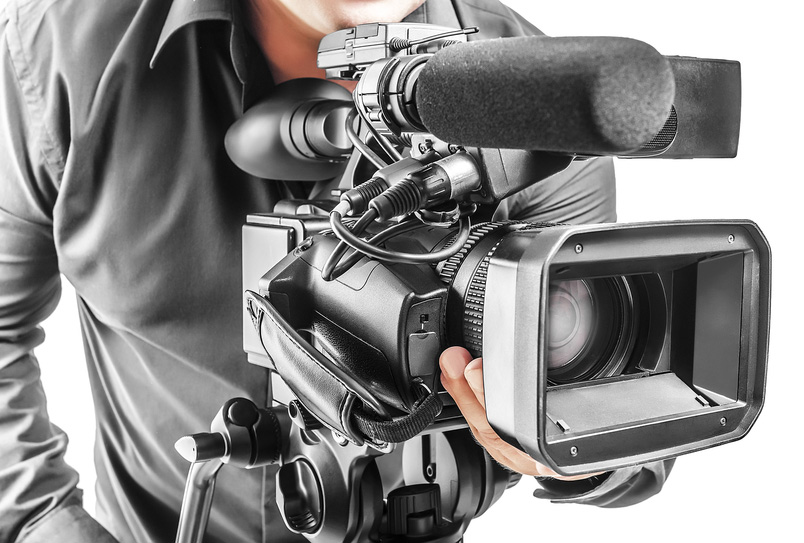Top Advantages of Utilizing Lawful Videography for Depositions and Tests
The assimilation of lawful videography into depositions and tests presents a series of compelling advantages that can substantially impact the effectiveness of lawful proceedings. By capturing witness statements in a vibrant layout, lawful videography not only improves the presentation of proof yet likewise boosts witness reliability with the conservation of both spoken and non-verbal hints. In addition, the psychological resonance of video can develop an extra extensive link with jurors, eventually influencing their assumptions. As we check out these benefits even more, the ramifications for lawful method and court room characteristics come to be progressively obvious.
Enhanced Evidence Discussion


In the world of lawful proceedings, making use of video clip recordings has changed the method evidence exists in court. Legal videography provides a vibrant and interesting tool for showcasing critical evidence, making complicated info much more available to courts, courts, and various other stakeholders. Unlike traditional written transcripts, video clip recordings catch not just the spoken words, but also the nuances of body language, tone, and attitude, which can significantly influence the analysis of statements and declarations.
Additionally, video proof permits a more compelling narrative discussion. Through visual narration, attorneys can properly highlight essential elements of a case, leading the target market's focus to crucial moments. This enhanced discussion can facilitate a much deeper understanding of the context and implications of the proof being discussed.
In addition, the capacity to present proof in a multimedia format can simplify the trial process, minimizing the moment needed to communicate details contrasted to extensive verbal explanations or reading from records. On the whole, legal videography plays a crucial role in boosting proof discussion, guaranteeing that the details is both impactful and comprehensible, ultimately assisting in the pursuit of justice.

Better Witness Reputation
Making use of legal videography dramatically boosts the credibility of witnesses during trial proceedings. By offering an aesthetic representation of a witness's testament, lawful videography allows jurors and courts to regard the witness's demeanor, self-confidence, and credibility. This multi-dimensional discussion can considerably affect how the info is obtained, often resulting in a more positive impact of the witness.
In addition, the videotaped video catches non-verbal cues, such as body movement and faces, which can be critical in sharing truthfulness or emotional deepness. A witness that shows up composed and genuine is more probable to be regarded as legitimate than one who is just listened to through sound. Legal videography additionally removes the possibility for false impression that can take place with composed transcripts, as the aesthetic style gives context that sustains the talked word.
Additionally, the durability of video evidence enhances the witness's account, making it harder for opposing events to challenge the testimony's reliability. By incorporating legal videography into depositions and trials, attorneys can considerably bolster the viewed honesty of their witnesses, eventually enhancing the total effectiveness of their instance.
Accurate Deposition Records
Exact deposition records play a vital duty in lawful proceedings, serving as necessary proof that mirrors the integrity and integrity of witness statements. This precision is crucial when establishing the truths of a case, as it enables attorneys to reference precise expressions or assertions made by witnesses, decreasing the risk of false impression.
Furthermore, legal videography enhances the accuracy of deposition documents by catching the visual and auditory elements of the testimony. This includes body movement, intonation, More about the author and facial expressions, which can give additional context to the spoken words. Such detailed records allow lawyers to craft even more engaging arguments, as they can quickly validate claims with direct evidence.
In addition, precise deposition records can improve the trial procedure, minimizing disagreements over what was claimed and permitting a much more efficient presentation of evidence. Inevitably, the combination of created records and video recordings cultivates a clearer understanding of witness testaments, dramatically influencing the instance's outcome.
Psychological Influence On Jurors
Jurors often find themselves affected by the psychological weight of the testimonies they witness during a test. The aesthetic and auditory aspects of legal videography enhance this emotional vibration, allowing jurors to view the nuances of witness expressions, tone, and body language. These aspects play a critical function fit jurors' understandings of trustworthiness and integrity.
When jurors see a witness recounting a distressing experience, the psychological gravity captured on video often evokes compassion and interaction. This can be specifically impactful in instances where the human aspect is central, such as injury or household regulation matters. The capacity to link with a witness's feelings promotes a deeper understanding of the case, making jurors a lot more likely to associate with the story being presented.
Additionally, video clip testimonies can share a feeling of credibility that may be shed in created records or audio recordings. Jurors are not just soaking up details; they are additionally experiencing the tale, which can considerably affect their considerations. This way, lawful videography acts as an effective device to you could try these out stimulate emotions, ultimately directing jurors towards a more educated and thoughtful judgment.
Cost-Effective Litigation Device
Lawful videography not just improves the emotional impact of witness statements yet also works as an affordable lawsuits tool. By providing a visual document of depositions and statements, lawful videography can considerably minimize the costs connected with traditional trial preparation and presentation.
First, it minimizes the need for substantial witness traveling and accommodations. As opposed to bringing numerous witnesses to court, their videotaped depositions can be played during the trial. legal videography. This not only saves money on travel expenses however additionally permits a much more structured presentation, as attorneys can concentrate on the most relevant statements
Furthermore, lawful videography can limit the amount of time invested in test. By effectively providing witness accounts and proof, lawyers can expedite proceedings, which converts to lower lawyer fees and minimized court room prices. Moreover, the quality and authenticity of video clip recordings usually lead to quicker jury choices, possibly shortening the test period.
In an age where spending plans are significantly inspected, utilizing legal videography can provide significant savings while enhancing the total high quality of a situation presentation. Its this content dual advantages of cost-effectiveness and improved communication make it a very useful tool in modern-day litigation.
Conclusion
In summary, lawful videography substantially boosts the performance of depositions and tests. Its ability to existing evidence adequately, enhance witness trustworthiness, and provide accurate records contributes to a more clear legal procedure.